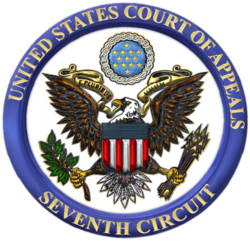The U.S. Court of Appeals for the Eighth Circuit recently affirmed summary judgment against the seller and originator of mortgage loans and in favor of the purchaser because the originator breached the purchase and sale agreement by refusing to cure or repurchase eight of the 11 loans. A copy of the opinion in CitiMortgage, Inc. v. Chicago Bancorp, Inc. is available at: Link to Opinion. The plaintiff mortgage loan investor purchased mortgage loans originated by the defendant lender in 2004. The plaintiff’s business involved re-selling most of its loans to other investors in the secondary mortgage market. The purchase and sale agreement required the…
Posts published in December 2015
The U.S. Bankruptcy Court for the Middle District of Florida recently held that: 1) A bankruptcy trustee was entitled to recover $1,000 in statutory damages on behalf of each of the husband and wife debtors against a loan servicer for violating the Florida Consumer Collection Practices Act (FCCPA) by contacting the debtors after they were represented by counsel; and 2) The servicer could not set off the $2,000 in FCCPA damages against the balance owed on the mortgage loan because, according to the Court, allowing a set off would thwart the FCCPA’s goal of deterring abusive debt collection practices; and…
The U.S. Court of Appeals for the First Circuit recently held that a genuine dispute of material fact precluded summary judgment on the issue of whether the sale of collateral was “commercially reasonable,” even though there was no evidence that the sale was not “fairly conducted.” A copy of the opinion in Harley-Davidson Credit Corp. v. Galvin is available at: Link to Opinion. The assignee of a loan secured by an interest in an aircraft sued the guarantor of the loan to collect $108,681.50, the deficiency that remained after the assignee sold the collateral through a third-party dealer. Pursuant to the loan…
The United States District Court for the Western District of Missouri recently granted a debt collector’s motion for judgment on the pleadings, holding an internal account number displayed on the envelope of a demand letter did not violate the Fair Debt Collection Practices Act (FDCPA) because it did not reveal the plaintiff was a debtor. A copy of the opinion in McShann v. Northland Group, Inc. is available at: Link to Opinion. In March 2014, the debt collector sent a demand letter regarding a consumer debt owed by the plaintiff. The letter’s envelope had a window in which the plaintiff’s name,…
The U.S. Court of Appeals for the Eleventh Circuit recently struck down Florida’s “anti-surcharge” statute, Fla. Stat. § 501.0117, holding that the Florida law prohibiting charging a fee to pay by credit card was an unconstitutional restriction of free speech. A copy of the opinion in Dana’s Railroad Supply, et al v. Attorney General, State of Florida is available at: Link to Opinion. Four small businesses filed suit after receiving cease-and-desist letters from the Florida Attorney General demanding they refrain from charging lower prices for customers using cash and higher prices for those using credit cards, and demanding that they refrain from…
In a case addressing what it means to “surrender” property under the Bankruptcy Code, the U.S. District Court for the Southern District of Florida recently held that a Chapter 7 trustee’s abandonment of real property only restores legal title to the debtors as if no bankruptcy petition had been filed, and does not also give the debtors the right to contest the mortgagee’s foreclosure if the debtors elected to surrender the property. A copy of the opinion in Failla v. Citibank, NA is available at: Link to Opinion. Husband and wife debtors defaulted on their mortgage and the mortgagee sued to foreclose.…
A credit reporting agency has settled a long-pending class action lawsuit in the U.S. District Court for the Eastern District of Virginia, agreeing to pay more than $3 million and remove from its consumer credit reports judgments entered in Virginia General District Court. The Fair Credit Reporting Act (FCRA) class action, Soutter v. Equifax Information Services LLC, was given the green light in April, with U.S. District Judge Robert E. Payne agreeing the standards for class certification had been met. In the class claim, plaintiff Donna K. Soutter contended Equifax willfully violated the FCRA when it failed to take reasonable…
The U.S. Court of Appeals for the Seventh Circuit recently reversed a district court’s denial of class certification in a putative class action alleging that a debt collector violated the federal Fair Debt Collection Practices Act (FDCPA) by sending supposedly misleading letters to Illinois residents trying to collect time-barred debts. A copy of the opinion in Scott McMahon v. LVNV Funding, LLC is available at: Link to Opinion. The plaintiff alleged that the defendant debt collector violated the FDCPA because it sent “dunning letters containing language that would mislead an unsophisticated consumer into believing that the debt is legally enforceable” even…
Section 75001 of the recently enacted Fixing America’s Surface Transportation (FAST) Act provides a new exception to the annual privacy notice requirement under the Gramm-Leach-Bliley Act (GLBA). The language of the provision is as follows: SEC. 75001. EXCEPTION TO ANNUAL PRIVACY NOTICE REQUIREMENT UNDER THE GRAMM-LEACH-BLILEY ACT. Section 503 of the Gramm-Leach-Bliley Act (15 U.S.C. 6803) is amended by adding at the end the following: (f) EXCEPTION TO ANNUAL NOTICE REQUIREMENT.—A financial institution that— (1) provides nonpublic personal information only in accordance with the provisions of subsection (b)(2) or (e) of section 502 or regulations prescribed under section 504(b), and…
The U.S. District Court for the District of New Jersey recently dismissed a debtor’s claims for violations of the federal Fair Debt Collection Practices Act (FDCPA) and the New Jersey Truth in Consumer Contract Warranty and Notice Act (TCCWNA), holding the debtor’s failure to schedule his lawsuit as an asset of his bankruptcy estate deprived him of standing to later assert the claims. A copy of the opinion in Lewis v. Portfolio Recovery Associates, LLC is available at: Link to Opinion. In March 2015, the debtor filed a lawsuit alleging the defendant sent him a letter in an attempt to collect a debt…
The U.S. Court of Appeals for the Second Circuit recently affirmed the dismissal of an action by the trustee of a residential mortgage-backed securities trust for breach of contractual obligations to repurchase mortgage loans that allegedly did not conform to representations and warranties, holding that: (1) the breach of contract claim was barred by the statute of limitations, which ran from the date the representations and warranties were made; (2) the so-called “extender provision” of the federal Housing and Economic Recovery Act did not apply to the trustee’s claim; and (3) the trustee’s claim for breach of the implied covenant…
Debt collectors seeking to avoid liability under the bona fide error exception of the federal Fair Debt Collection Practices Act (FDCPA) will not be excused from liability if the conduct at issue was intentionally undertaken. That is the ruling from the Seventh Circuit Court of Appeals in Leeb v. Nationwide Credit Corporation. Mark Leeb received a telephone call and letter from Nationwide seeking payment for an unpaid medical debt. Leeb wrote Nationwide stating he did not owe the debt because it was payable by his health insurance. He also requested Nationwide provide him verification of the debt under section 1692g(b) of…












